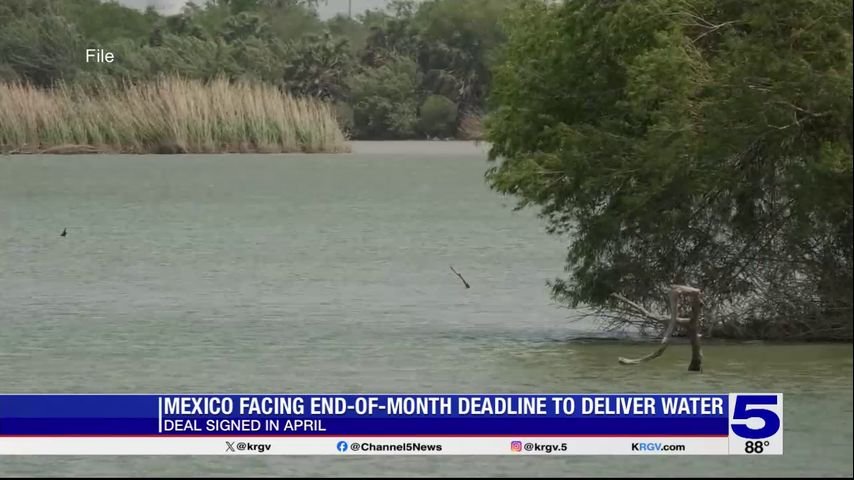Mexico’s Urgent Deadline: Water Commitment to the United States
As tensions rise over water access, Mexico faces a critical deadline by the end of the month to fulfill its obligation to deliver water to the United States. Through an agreement signed in April, the two nations established a framework requiring Mexico to send a specified quantity of water to the Rio Grande, a vital water source for both countries.
Background of the Agreement
The agreement made in April is part of ongoing efforts between the U.S. and Mexico to manage shared water resources effectively. However, lingering issues from a historic treaty signed in 1944 complicate the situation. Under this treaty, Mexico is still responsible for delivering approximately 900,000 acre-feet of water, with the current five-year cycle concluding this month. The lack of stringent penalties in the ’44 treaty has left U.S. water advocates seeking a stronger enforcement mechanism.
The Impact on Local Agriculture
Hidalgo County water advocate Sonny Hinojosa emphasizes the critical importance of meeting the agreed water supply, not just for the immediate deadline but for the future of agriculture in the Rio Grande Valley. Farmers rely on consistent water delivery for crop production, and any shortfall could have devastating effects on local agriculture and communities.
Advocacy for Change in the Treaty
In a meeting held last week, stakeholders including farmers, lawmakers, and water advocates gathered to discuss the ongoing water issues. Their primary focus was to incorporate stronger terms into the United States-Mexico-Canada Agreement (USMCA), which is due for renegotiation. Hinojosa and others believe that by advocating for these changes, they can create a system where penalties would be enforced against Mexico for failing to uphold its water delivery commitments.
Mobilizing Community Input
The call for public input on the USMCA is a critical step in this advocacy effort. By mobilizing community members, local leaders hope to stress the urgency of the situation to policymakers. Engaging a broader audience may encourage stronger emphasis on the importance of shared water rights and sustainable practices in future agreements.
Conclusion: A Call for Accountability
As the deadline approaches, it remains to be seen whether Mexico will fulfill its water delivery commitment for this cycle. The ongoing efforts to address historical shortcomings in water treaties highlight the necessity for accountability in international agreements concerning shared resources. Advocacy groups, farmers, and local lawmakers are all striving for a fair and enforceable solution that ensures both countries can thrive while managing their shared water resources responsibly.
For further background on water management agreements, visit US-Mexico Water Relations. Addressing these crucial issues requires not only negotiation but also a commitment to uphold the principles of sustainability and cooperation for generations to come.


